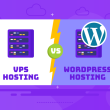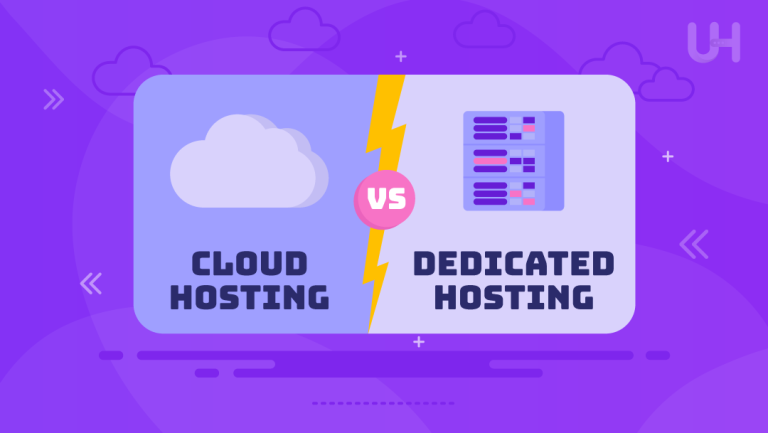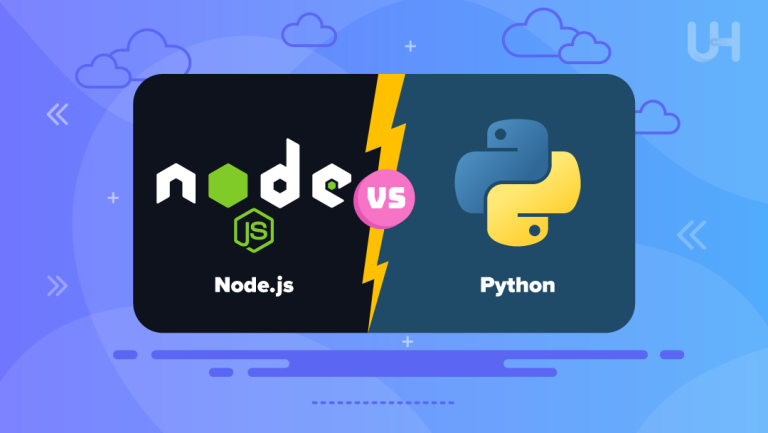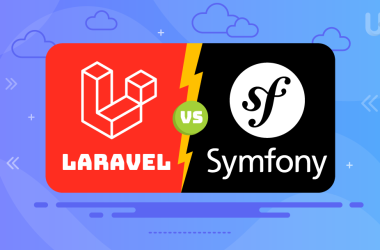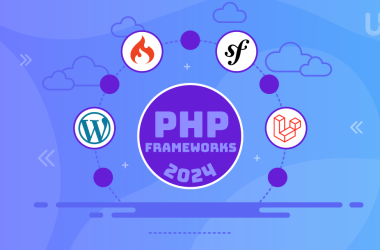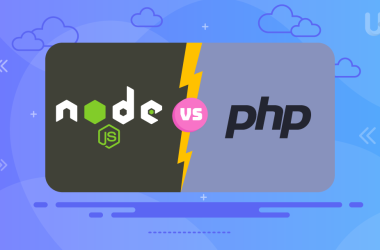PHP Hosting is a reliable solution for powering dynamic websites, offering the flexibility and performance needed to run interactive, data-driven applications. PHP stands for Hypertext Preprocessor. It is a popular and dominant scripting language that is used to make dynamic websites. It enables developers to build interactive web pages that can interact with databases based on the data they update. PHP is used because it is flexible, works well with various content management systems, such as WordPress, and is open-source. It helps businesses and individuals create tailored and functional websites.
PHP hosting is essential for dynamic websites requiring server-side processing, like online stores or blogs. The right hosting provider will ensure your website is always running smoothly, secure, and loads quickly. Therefore, you should carefully pick a provider that offers the right tools, performance, and support for PHP websites.
What is PHP Hosting?
PHP hosting is a type of web hosting service that supports the PHP programming language. This allows your website to run PHP scripts on the server, thus enabling dynamic and interactive content. PHP hosting is very important for websites that require processing forms, handling user logins, or fetching data from a database.
Unlike semantic HTML, which always presents the same content to everyone, PHP hosting can vary the content presented to a visitor based on a user action or some other factor. PHP hosting also differs from WordPress hosting, as the latter specifically optimize servers for WordPress sites. While WordPress hosting supports PHP, it also includes tools tailored to the needs of WordPress users, including automatic updates and plugins. PHP hosting is usually more general to host a wide range of various PHP CMS and open-source eCommerce platforms to custom-built websites.
Common Use Cases of PHP Hosting:
PHP hosting for the most part relies on content management systems (CMS), such as Drupal, WordPress and Joomla. These technologies are based entirely on PHP where dynamic website management depends on such PHP. Its main use involves the eCommerce Website that processes transactions and client information. It can be used to display product information, manage shopping carts, and integrate payment gateways in an online store. PHP hosting is also utilized for custom-built websites that may require interactive features such as contact forms, member registration, or real-time updates.
Why PHP Hosting is Indispensable for Dynamic Websites
PHP is a server-side scripting language, which implies that it is executed on the server side, not the user’s browser. This way, PHP can make dynamic content creation possible by referencing real-time information. For instance, a PHP script could get product details from a database and place them on a webpage, or update the information of an account for a user who has just filled out a form.
PHP also seamlessly integrates with databases such as MySQL. This is essential for developing data-driven websites where content varies with user interaction or input. For example, an online shop uses PHP to retrieve product data from a database and then render it on the product pages. Websites wouldn’t be able to perform such complex, interactive functions without PHP hosting.
Choosing a hosting provider that supports PHP is vital for your website’s performance and functionality. A good provider ensures that PHP runs smoothly, and your website’s database interactions are quick and reliable. Without proper PHP hosting, websites may experience slow loading times, security issues, or even crashes, especially if they rely heavily on PHP for dynamic features. Therefore, selecting the right hosting provider is key to ensuring a seamless and efficient experience for users.
Key Features to Look for in a PHP Hosting Provider
When selecting a PHP hosting provider, look for the following features such as performance, PHP version support, security, scalability, and customer support responsiveness so that your website runs smoothly and securely.
Performance and Speed
The performance of your PHP website depends on the hosting environment. Things like server resources, such as CPU, RAM and storage, play a role in how fast your website loads. When a server has enough resources, it can process PHP scripts efficiently, which improves website speed. Load balancing also helps to distribute traffic evenly across multiple servers, preventing slowdowns during peak times.
Speed is vital for both SEO and user experience. Google looks at page loading time as a ranking factor, which means that websites that load quickly rank higher in search results. For users, a fast website increases satisfaction and decreases bounce rates. Therefore, a hosting provider that focuses on performance can guarantee that your PHP website runs without any problems and meets the expectations of both SEO and user experience.
PHP Version Support
PHP versions are an important part of website functionality. With time, newer versions of PHP provide better performance, security, and features. Every PHP version introduces updates that can optimize how PHP scripts are processed, making websites faster and more secure.
The hosting provider chosen should support the latest PHP versions. Using older PHP versions would result in security vulnerabilities, poor performance, and compatibility issues with newer software. A good hosting provider will allow easy access to the latest PHP versions and keep updating them to run your website at its best.
Security and Reliability
Security is the top priority for PHP-based websites. As PHP interacts with databases and processes user data, websites are prone to attacks like SQL injections, cross-site scripting (XSS), and other threats. A good hosting provider should provide affordable SSL certificates to encrypt data between the server and users, along with malware protection to protect against malicious attacks.
Other essential elements are uptime guarantees and reliability standards. Your PHP website needs to be on a server with the capability to deliver steady uptime to allow for your website’s consistent accessibility by visitors. Be on the lookout for hosting companies with a guarantee of at least 99.9% uptime, in addition to a proper backup to get data recovered when the system has failed or in the case of an attack.
Looking For a Reliable PHP Hosting Solution?
Choose Ultahost for fast, secure, and scalable hosting that supports the latest PHP versions. Get 24/7 customer support and high-performance servers tailored to your website’s needs.
Scalability and Flexibility
As your PHP website grows, the hosting provider should be able to scale their resources for increased demand. This means more bandwidth, more storage, and more server resources as needed. Scalability ensures that your website performs well even when traffic spikes.
Flexibility is also important with PHP configurations, modules, and extensions. Different sites have different needs that require different settings for PHP. A good host should allow flexibility in PHP settings so that a website can operate specific applications or features without limit.
Customer Support
Responsive and knowledgeable customer support would be very important in PHP hosting. Issues come at very inconvenient times, such as a server problem or PHP script error, and being able to get support at times like these is vital. Therefore, look for a host that has more support options, including live chat, email, and phone support, to ensure you can get help quickly when needed.
Additionally, the provider should have experience with PHP hosting. Support teams should understand PHP-related issues and be able to provide solutions efficiently. This level of expertise ensures that your website remains up and running without unnecessary downtime.
Types of PHP Hosting
PHP hosting come in various types, including shared, VPS, dedicated, and cloud hosting, each offering different levels of performance, control, and scalability to suit different website needs.
Shared PHP hosting is a popular and affordable option for small to medium-sized websites. In shared hosting, multiple websites share the same server resources, such as CPU, RAM, and bandwidth. This makes it cost-effective, as the expenses are divided among all users.
However, shared server hosting comes with some limitations. Since resources are shared, the performance can be affected by other websites on the same server. If one website experiences high traffic, it may slow down others. Shared hosting is best for websites with lower traffic and basic needs, but it may not be suitable for larger, high-traffic sites.
VPS Hosting
VPS (Virtual Private Server) hosting offers more control and customization compared to shared hosting. With VPS hosting, you still share a physical server, but you have dedicated virtual resources, such as RAM and CPU, allocated to your website. This ensures better performance and stability, even during traffic spikes.
VPS hosting is ideal for businesses that need more power and flexibility as they grow. It allows you to install custom PHP configurations and manage your server settings. While VPS hosting is more expensive than shared hosting, it provides a better experience for websites with higher traffic and resource demands.
Dedicated Hosting
Dedicated hosting provides the highest level of performance and control. In this type of hosting, your website has its physical server, meaning no sharing of resources with other sites. This leads to faster speeds, better security, and more control over server configurations.
Dedicated hosting is perfect for large or high-traffic websites that require maximum performance and reliability. It’s also ideal for mission-critical applications that cannot afford downtime. However, it comes with a higher cost, making it less suitable for small websites or businesses on a tight budget.
Cloud Hosting
Cloud hosting is a flexible and scalable option for PHP websites. Instead of relying on a single server, cloud hosting uses multiple servers connected to host your website. This ensures high availability and the ability to scale resources as needed.
For businesses with fluctuating traffic or growing resource needs, cloud hosting offers significant benefits. You can easily increase or decrease your server capacity based on demand, making it an ideal choice for websites that experience variable traffic. Cloud hosting also offers improved redundancy and reliability, as your data is stored across multiple servers, reducing the risk of downtime.
How to Choose the Right PHP Hosting Provider
To choose the right PHP hosting provider, assess your website’s needs, evaluate potential providers based on reviews and support, and balance cost with essential features for long-term value.
Assess Your Website’s Needs
Before choosing a PHP hosting provider, it’s important to assess your website’s size, traffic, and functionality requirements. Small websites with low traffic may only need basic hosting, like shared hosting. However, if your website handles high traffic or requires special features, such as custom PHP configurations or database-intensive applications, you may need VPS or dedicated hosting.
Consider the purpose of your website as well. If you have an eCommerce store or a dynamic content-driven site, it’s essential to choose a hosting plan that can support heavy traffic and complex functionality. Evaluating these needs will help you make the right decision between dedicated hosting, shared hosting or VPS hosting.
Evaluating Hosting Providers
Once you’ve assessed your website’s needs, it’s time to evaluate potential hosting providers. Start by researching customer reviews to see how other users rate the provider’s performance and reliability. Look for uptime guarantees to ensure your website stays live and accessible at all times. It’s also important to test customer support responsiveness before purchasing. Ask questions about PHP version support, server configurations, and other technical details to gauge how quickly and effectively the support team responds. A hosting provider with excellent customer service can help resolve issues quickly, minimizing downtime and ensuring smooth website operation.
Cost vs Features
When choosing a PHP hosting provider, balancing cost and features is key. While it may be tempting to opt for the cheapest plan, it’s essential to ensure that the provider offers the necessary features for your website to function properly. For example, look for PHP version support, security features like SSL certificates, and sufficient bandwidth and storage.
It’s also important to assess the long-term value of the hosting plan. While a lower-cost plan might save you money initially, you may end up paying more in the long run if you need to upgrade your hosting or face performance issues. Choose a provider that offers a balance of features and costs to ensure your website’s growth and success.

Troubleshooting Common PHP Hosting Issues
Troubleshooting common PHP hosting issues involves addressing slow website performance, resolving PHP errors and compatibility issues, and mitigating security threats with the right hosting solutions and best practices.
Slow Website Performance
Slow website performance can be caused by several factors, including high server load, poor coding practices, or inadequate server resources. When too many websites share the same server, the server can become overloaded, leading to slower performance. Similarly, poorly written PHP code, excessive use of database queries, or unoptimized images can also contribute to a sluggish site.
To optimize performance with PHP hosting, you should start by minimizing resource-heavy operations in your code. Consider caching, which stores data temporarily to reduce server load. Choosing a hosting provider with sufficient server resources and utilizing features like load balancing can also help improve website speed. Additionally, regularly reviewing and updating your code ensures better efficiency and faster response times.
PHP Errors and Compatibility Issues
PHP errors are common during website development. Syntax errors, such as missing semicolons or brackets, can cause PHP scripts to fail. Additionally, memory limit errors can occur if a PHP script uses more memory than the server allows, leading to site crashes or slowdowns.
To solve compatibility issues between PHP versions and applications, it’s essential to choose a hosting provider that supports the latest PHP versions and ensures backward compatibility with older versions when necessary. Regularly updating PHP and keeping your applications, such as content management systems (CMS), up-to-date will help avoid errors. If compatibility issues arise, checking error logs and consulting support can quickly resolve these problems.
Security Threats and Vulnerabilities
PHP websites are vulnerable to common security threats like SQL injection, cross-site scripting (XSS), and cross-site request forgery (CSRF). These threats occur when attackers exploit vulnerabilities in the website’s PHP code to gain unauthorized access or inject malicious content.
A good PHP hosting provider helps mitigate these risks by offering security features such as SSL certificates, regular malware scanning, and automated regular data backups. Additionally, some providers implement Web Application Firewalls (WAF) to protect websites from common threats. Regular updates to PHP, along with secure coding practices and proper input validation, can further reduce the risk of security breaches and ensure your PHP website remains safe from threats.
Boost Your Website With Reliable VPS Hosting!
Ultahost offers quick setup, high-speed servers, and full control to meet your growing business needs. Enjoy top-notch security, scalability, and 24/7 support. Upgrade to fast VPS hosting now!
Best Practices for Optimizing PHP Web Hosting
To optimize PHP web hosting, focus on efficient PHP coding, regular backups and updates, and implementing strong security enhancements to improve performance and protect your website.
Optimizing PHP Code for Better Performance
To ensure better performance, writing efficient PHP code is essential. Code that is clean and well-structured reduces the strain on the server. For example, using loops and functions effectively can decrease processing time and improve the overall speed of your website. Avoiding unnecessary computations and using built-in PHP functions can also help minimize the workload.
In addition, caching mechanisms can significantly reduce server load. By storing frequently requested data, caching reduces the need for repeated database queries, improving speed. Minimize database queries by combining queries and ensuring that only the necessary data is requested. This helps optimize PHP hosting performance by decreasing server demands and enhancing load times.
Regular Backups and Updates
Regular backups are crucial for PHP websites to protect against data loss. Backups ensure that you can restore your website to its previous state in case of an issue or attack. It is essential to schedule automated backups so that you don’t miss out on saving important files and data. This ensures your website remains safe, even if an error or problem occurs.
Equally important is keeping PHP scripts and applications up to date. Updating your PHP scripts ensures they run efficiently and securely. Many hosting providers offer tools to automate updates, reducing the risk of outdated code or compatibility issues. Keeping PHP updated also prevents vulnerabilities, which can otherwise be exploited by hackers.
Security Enhancements
PHP websites are often targeted by cyberattacks, so implementing security practices is vital. Using firewalls, both hardware and software, protects the server from malicious traffic. SSL/TLS certificates should be used to ensure secure data transfer between the server and users, preventing data breaches.
Keeping PHP versions updated is another critical security measure. Newer versions address security vulnerabilities and bugs found in previous releases. Regularly checking for updates and using the latest stable PHP version will enhance security, reduce risks, and ensure that your website functions smoothly.
Comparing PHP Web Hosting with Other Types of Hosting
Comparing PHP web hosting with other types of hosting highlights key differences in optimization, control, and functionality, making it essential to choose the right hosting based on your website’s needs.

WordPress Hosting
- PHP Hosting: Focuses on running PHP applications, offering flexibility and control over code and server configurations.
- WordPress Hosting: WordPress Hosting is specifically optimized for WordPress websites, providing pre-configured settings and tools tailored for easy management of WordPress sites.
- Key Differences: PHP hosting gives more control and customization, while WordPress hosting is user-friendly but less flexible.
- Best for: PHP hosting is ideal for custom-built websites, whereas WordPress hosting is perfect for users who want to easily manage WordPress sites without worrying about configuration.
Node.js Hosting
- PHP Hosting: A traditional choice for dynamic websites, suitable for server-side scripting, and compatible with MySQL databases.
- Node.js Hosting: Designed for real-time applications, offering better performance for concurrent requests and event-driven processes.
- Key Differences: PHP is better suited for websites that rely heavily on server-side scripting and databases, while Node.js is ideal for fast, scalable real-time applications.
- Best for: PHP hosting works well for content management systems, while Node.js hosting excels in interactive, real-time applications like chat apps or live updates.
Static Website Hosting
- PHP Hosting: Designed for dynamic websites, enabling content to be generated and updated on the fly using PHP scripts and databases.
- Static Website Hosting: Hosts static HTML, CSS, and JavaScript files with no server-side processing, making it faster but less flexible.
- Key Differences: PHP hosting supports dynamic content and interactivity, whereas static hosting is limited to fixed content.
- Best for: PHP hosting is essential for websites that require constant updates, forms, or e-commerce functionality, while static hosting is best suited for simple, informational websites with no server-side logic.
Conclusion
PHP web hosting is essential for running dynamic websites efficiently. Choosing the right hosting provider can significantly impact your website’s performance and functionality. It’s important to evaluate your website’s needs, such as traffic, scalability, and security, before selecting a provider. By making an informed decision, you ensure that your PHP-based website will run smoothly and successfully meet your goals. Take the time to consider all factors and choose a hosting solution that supports your website’s growth and long-term success.
UltaHost beats everything, Get a free setup for any of your Envato scripts with 20X faster servers, We are the Recommended Envato Hosting provider, by thousands of users and script authors.
FAQ
What is PHP hosting?
PHP hosting refers to a web hosting service that supports PHP scripts, enabling dynamic website functionality and database integration.
Why do I need PHP web hosting?
It is essential for running dynamic websites, including CMS platforms, eCommerce stores, and interactive web applications.
How is PHP hosting different from regular hosting?
PHP hosting is specifically optimized to support PHP-based websites and applications, ensuring compatibility and better performance. Regular hosting may not include the necessary configurations or tools for running PHP scripts efficiently.
Which is the best PHP hosting provider?
The best PHP hosting provider offers fast servers, the latest PHP versions, top security, and reliable customer support, like Ultahost.
Can I run WordPress on PHP hosting?
Yes, WordPress is built with PHP, making PHP web hosting a suitable option for running WordPress websites.
What features should I look for in a PHP hosting provider?
Look for features like PHP version support, security, scalability, performance optimization, and responsive customer support.
Is shared PHP hosting good for my website?
Shared PHP hosting is cost-effective for small sites, but growing websites may need VPS or dedicated hosting for better performance.




